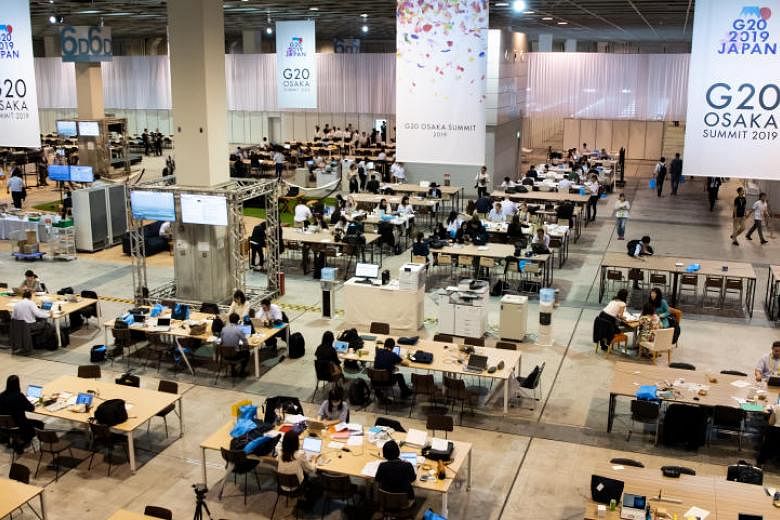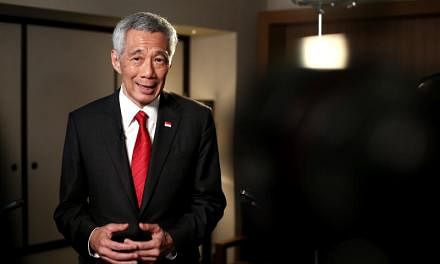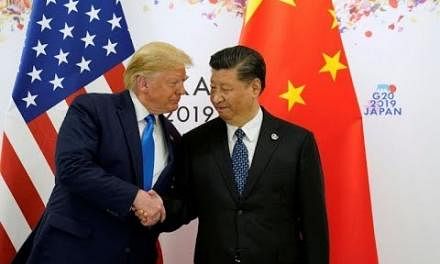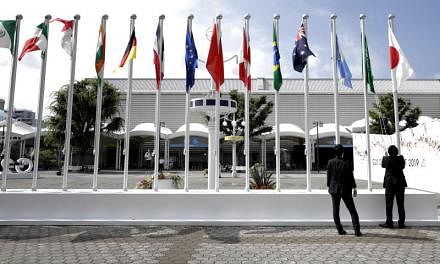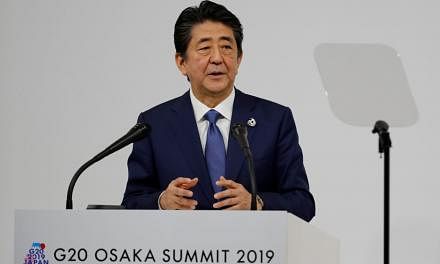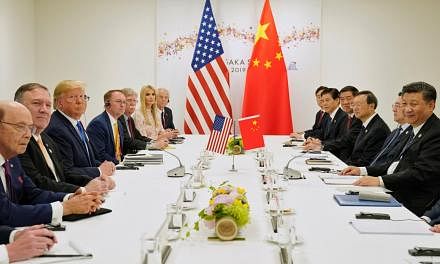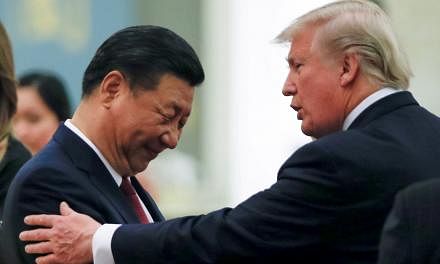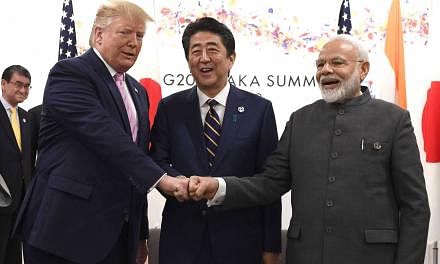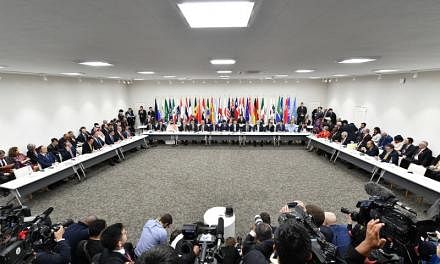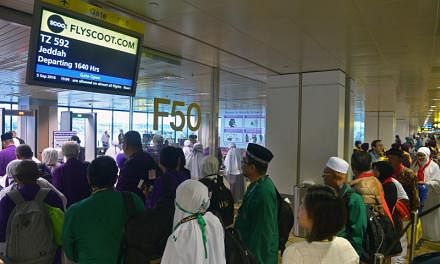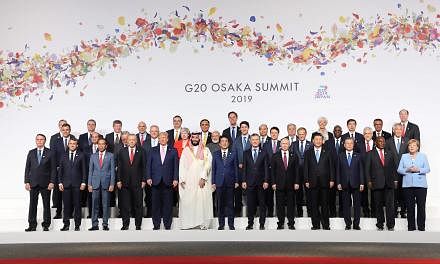OSAKA - Leaders from the world's 20 most eminent economies are gathering in Osaka for the two-day Group of 20 (G-20) summit starting on Friday (June 28).
Here are five things to watch out for during the leaders' pow-wow, and the series of bilateral meetings taking place on the sidelines of the summit.
1. TRUMP-XI TALKS
When: Saturday, June 29, 11.30am (10.30am Singapore time)
The presidents of the world's two largest economies - Mr Donald Trump of the United States and Mr Xi Jinping of China - will sit down for a high-stakes meeting as they try to find common ground on their months-long trade war.
The stakes are high as any failure to strike at least a truce to their imbroglio - which has disrupted global supply chains and jolted financial markets - could lead to more pessimism in the global economic outlook.
Both sides raised tit-for-tat tariffs last month, while Mr Trump has also threatened fresh duties on another US$325 billion (S$440 billion) worth of Chinese goods.
Working-level talks have, however, reportedly led to both sides agreeing to a tentative truce. But the devil will be in the details in how both countries can move forward in an impasse that has gone beyond trade to include areas like technology, infrastructure and defence supremacy and led to talk of a "clash of civilisations".
2. ABE-XI TALKS
When: Thursday, June 27, 7.10pm (6.10pm Singapore time)
Mr Xi is the first Chinese president to visit Japan in almost nine years, since then President Hu Jintao attended the Apec summit in Yokohama in November 2010.
The visit comes as relations between Asia's two largest economic powerhouses have significantly improved over the past year, as they vowed to turn a page on their longstanding differences and elevate ties to a "new dimension".
Relations took a turn for the worse in 2012 when Japan nationalised a group of islets in the East China Sea known as Senkaku in Japan and Diaoyu in China, sparking a bitter territorial row.
Japanese Prime Minister Shinzo Abe is likely to invite Mr Xi as a state guest to Tokyo, possibly early next year, and sign a series of agreements that pledge to redefine their bilateral relationship.
3. TRUMP-ABE TALKS
When: Friday, June 28, 8.30am (7.30am Singapore time)
Mr Trump and Mr Abe are best chums, with the Japanese leader having gone out of his way to court the mercurial US President over 11 face-to-face summit meetings and 32 telephone talks.
This will be the third face-to-face meeting between the two leaders in as many months, but what has long been expected to be a run-of-the-mill summit meeting - during which Mr Abe was due to update Mr Trump on his visit to Iran earlier this month - has taken a turn after Mr Trump again lambasted an alleged imbalance in the US-Japan security treaty.
"If Japan is attacked, we will fight World War III. We will go in and protect them with our lives and with our treasure," Mr Trump said. "We will fight at all costs, right? But if we are attacked, Japan doesn't have to help us at all. They can watch on a Sony television."
Japan's top government spokesman Yoshihide Suga said in response that obligations are balanced in their security treaty.
4. TRADE PLEDGE
Apec leaders failed to issue a joint communique in Papua New Guinea in November last year over their differences on trade, while G-20 leaders, meeting in Argentina two weeks later, only managed to issue one after they dropped a longstanding signature commitment to fight against protectionism from their leaders' statement.
On Thursday, Mr Abe vowed to seek common ground at the summit. He said: "People tend to focus on differences in the international community, but Japan as the host country will focus on what countries have in common and what they can agree on."
Experts and government officials have tamped down expectations of a tough statement against protectionism, with the term absent in a draft communique seen by Japanese media.
Rather, the leaders will endorse the "promotion of free trade" and address inequality by pledging to create a virtuous cycle for the broad distribution of economic growth benefits, given the wave of populism sweeping the world.
5. DICEY ISSUES
Activists have spared no effort to train the world's attention on dicey issues, but it remains to be seen if these will be taken up at the G-20 summit given Japan's hopes for a cordial meeting.
While Hong Kong activists ramp up the pressure on G-20 leaders to raise the issue of human rights and a controversial suspended extradition law with a silent march on Wednesday to dozens of consulates in Hong Kong, China has said it will denounce efforts by any country to interfere in what it calls an internal affair.
The fiancee of murdered Saudi Arabian journalist Jamal Khashoggi has also urged Mr Abe to raise the issue and ramp up the pressure on visiting Saudi Arabian Crown Prince Mohammed bin Salman. Ms Hatice Cengiz, 36, said this week that "many questions" remain over the death.
Meanwhile, to protest Japan's heavy reliance on the use of coal, activists gathered in the neighbouring city of Kobe on Thursday where they released a 4m-tall blimp of Mr Abe in front of a coal-fired power station.
The organisers said they have gathered 80,843 signatures in an international petition for Mr Abe to do more to achieve a low-carbon future.
